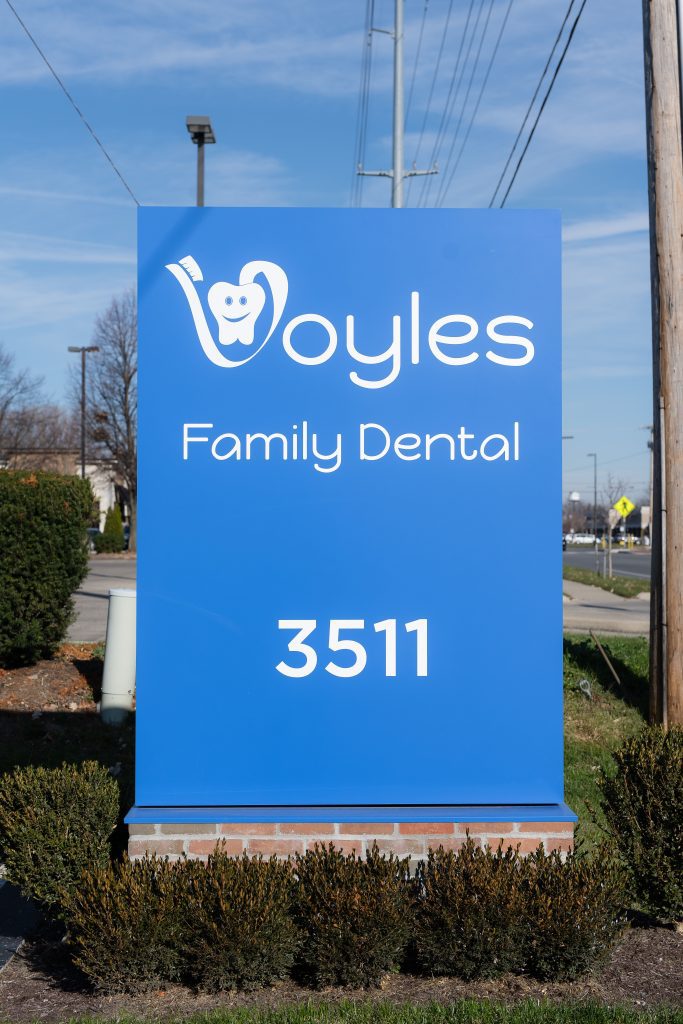Voyles Family Dental
For families in Hilliard seeking reliable and comprehensive dental care, Voyles Family Dental is a full-service dental clinic that offers personalized and advanced dental treatments, ensuring a healthy smile for every family member.
Call The Office
(614) 876-1241
Office Location
3511 Main St., Hilliard, OH
Email Us
hilliard.smiles@gmail.com
Make Payment
Patients may use this payment link to pay amounts that are due.
Patient Reviews
View what our patients have to say and leave your own feedback.
Dental Services
We serve patients in Hilliard and surrounding communities from child to adult and senior.
Contact
Emergency and same day service available. If you are experiencing pain or discomfort let us help you.
Hilliard Ohio Dental Practice
Welcome to Voyles Family Dental, where your smile is our top priority. As a new patient joining our family, you’re embarking on a journey towards exceptional oral health and a radiant smile, cared for by a team that values your comfort and well-being.
Our practice, nestled in the heart of Hilliard, is more than just a dental clinic; it’s a place where families grow with us, experiencing top-notch dental care through every stage of life. Our welcoming environment, coupled with our team’s compassionate and personalized approach, ensures that every aspect of your dental experience is seamless and stress-free.
Your dental health journey is unique, and we honor that by providing tailored care. Our range of services cover everything from routine check-ups to advanced treatments, ensuring that all your dental needs are met under one roof. Whether you’re seeking a brighter smile, need urgent care, or are exploring options like Invisalign or dental implants, we have the expertise and technology to achieve your goals.
Safety and comfort are paramount at Voyles Family Dental. We adhere to the highest standards of cleanliness and patient care, ensuring a safe and relaxing experience every time you visit.
Join us at Voyles Family Dental, where your family becomes part of ours. Experience the difference of comprehensive, caring, and personalized dental services in Hilliard. We’re excited to welcome you and look forward to being a part of your dental health journey.

Oral Sedation
A common option we provide our patients to ease anxiety and provide a comfortable and pain free experience is oral sedation.
Teeth Whitening
Teeth whitening is a popular cosmetic change, and Voyles Family Dental can make sure that it is done right.
Dentures
Voyles Family Dental are experienced providing both full and partial denture services to ensure you get the fit you need.
Dental Crowns
Crowns can be extremely beneficial for weak or fractured teeth. Trust Voyles to provide supportive care you need.
Root Canals
Allow us to correct severe damage or infection to your tooth with a routine procedure to save your tooth.
Invisalign
Embrace the latest technology in orthodontics to correct crooked or gapped teeth with invisable aligner trays.
Dental Implants
Dental implants can be an excellent tooth replacement option for those seeking permanent solutions.
Fillings
Fillings are used to repair cracked, broken, or decayed teeth. Voyles expert care will leave your tooth as good as new.
Our Dentists
Dr. James Voyles
Dentist
Dr. James Cook
Dentist


